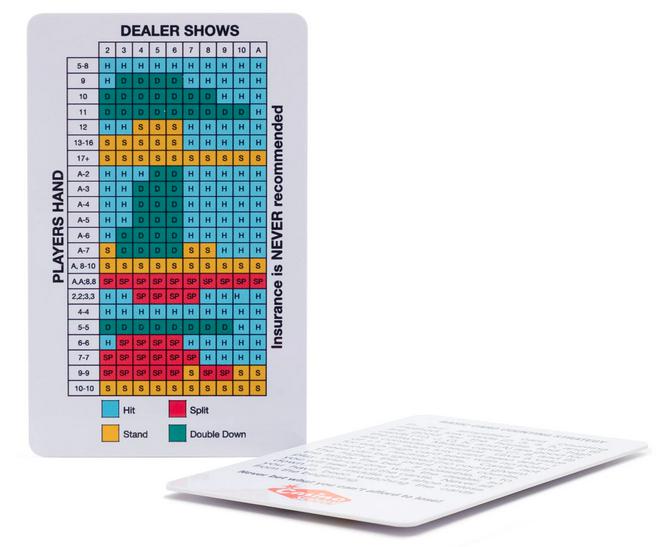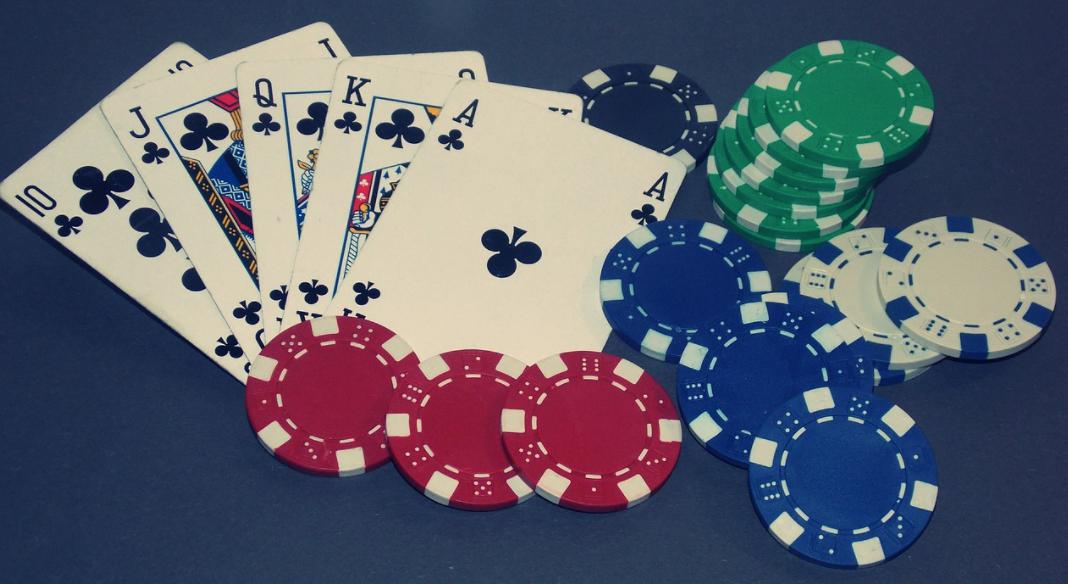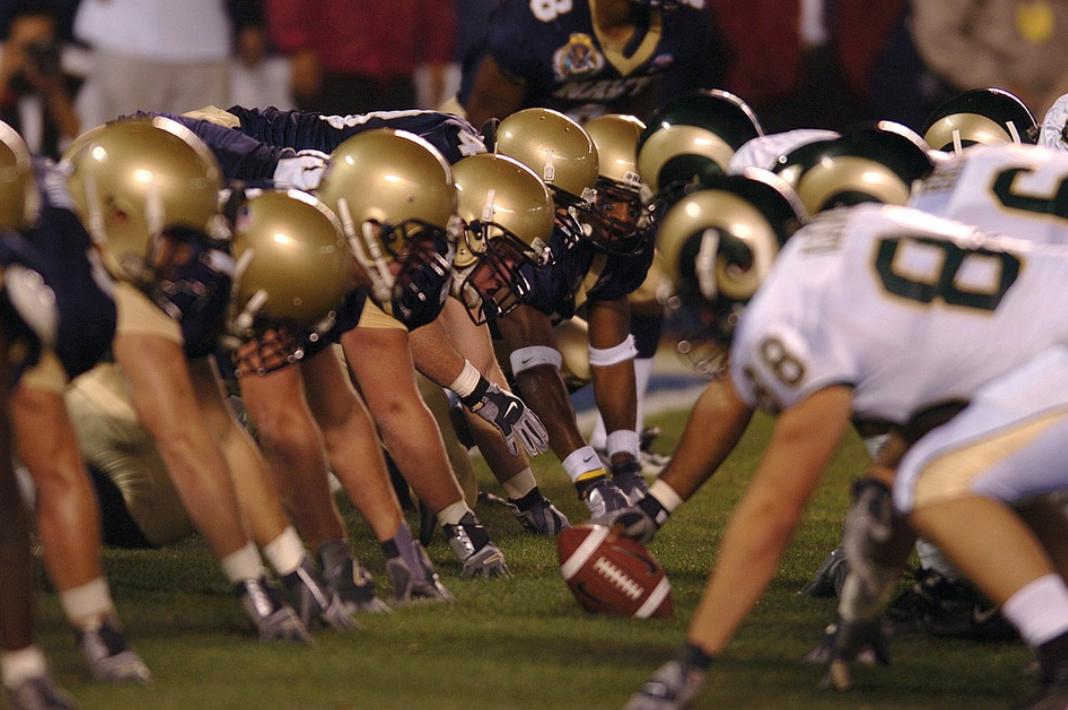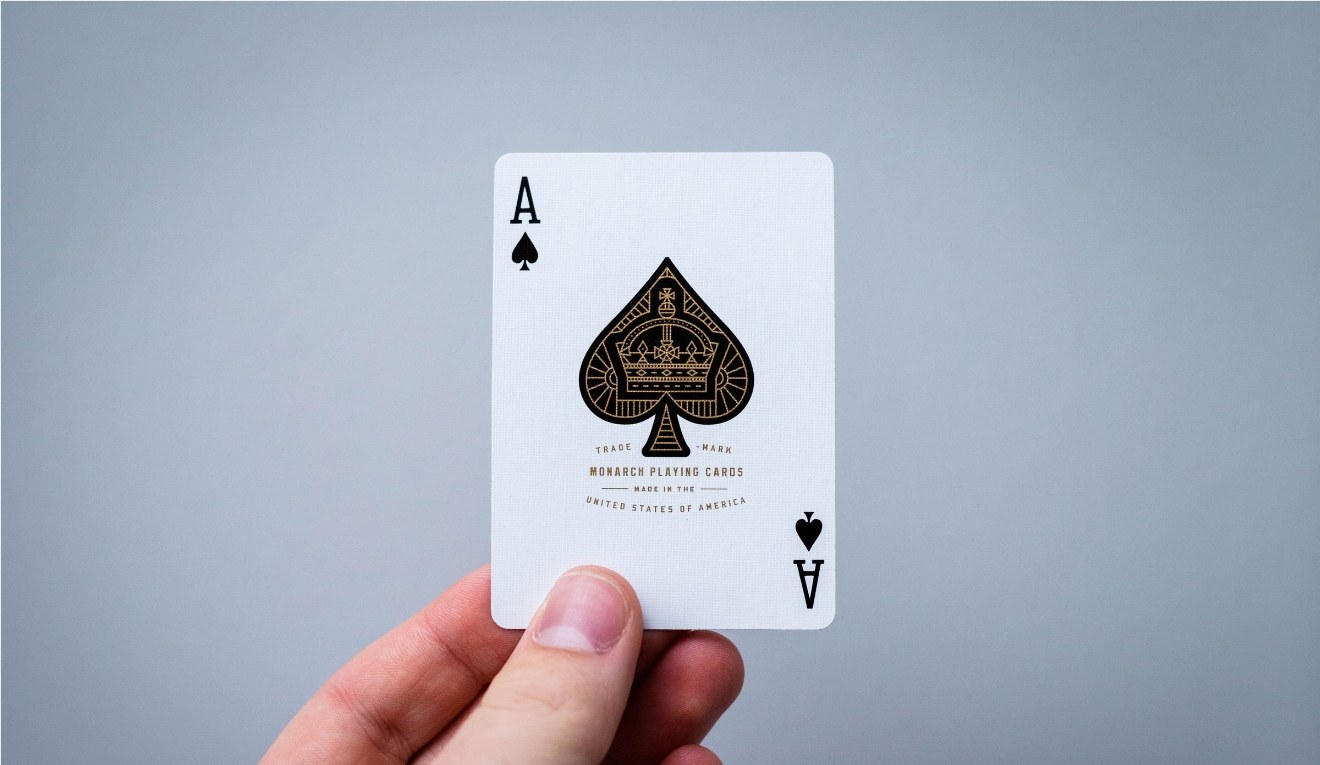What many people don’t understand is that gambling is not about luck. It’s about mathematics. Whether we’re talking about classic casino games, online slots, or sports betting, it’s math that plays the most significant role. And yes, games available at online casino sites are indeed developed to improve the house’s chances of winning in the long run. However, that doesn’t mean they’re rigged. They just rely on basic mathematical principles that give them the edge over casino players.
But that’s not the only purpose of math in gambling. You can also use it to your advantage, although not in a way you might think. Let’s not get ahead of ourselves, though. In the guide below, we’ll show you how gambling mathematics works and how to use it when playing your favorite casino games. We’ll start with the basics and then guide you through the most critical factors to consider when gambling, including calculating odds, explaining house edge, and random events.
And don’t worry, we won’t bore you with complicated equations and definitions. We want to show you that math doesn’t have to be dull or overwhelming. On the contrary, it can be unbelievably exciting and pretty straightforward to understand, especially when it’s your money at stake. Are you ready? Let’s get started.
Why Should One Learn Gambling Math
Many inexperienced players don’t treat gambling mathematics as a necessary skill to master in order to play. After all, you can still win without using any mathematical methods to boost your chances. That’s a terrible approach, though. In the long run, relying on sheer luck and intuition won’t get you anywhere. Mostly because of false assumptions and superstitious beliefs. There’s more to it, though, as it often depends on a game you want to play.
For example, when playing table games like online poker, blackjack, or roulette, understanding how math works will help you place the best wager possible, significantly improving your odds of winning. The same goes for sports betting. Without this knowledge, you won’t understand whether you place a profitable bet. Moreover, you won’t even know what you’re really betting your money on!
However, that’s not the only reason why knowing more about casino math can come in handy. Besides increasing your probability of winning more money, it can also help you play more responsibly. Why? Because you’ll finally see that gambling is not about good or bad luck. In other words, it will help you overcome any potential superstitions, allowing you to make more reasonable decisions, no matter what casino game you’re playing.
Understanding Online Gambling Mathematics
Okay, you know why it’s crucial to know a thing or two about mathematics when playing gambling games. Now let’s get to the hard part - understanding the math itself. As mentioned, we’ll do our best to explain it in the least complicated way possible. Are you ready? Let’s start with the basics first:
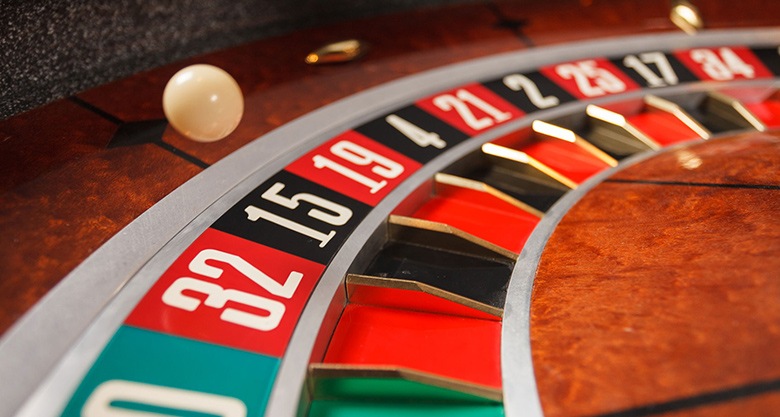
Odds and Probabilities
Odds and probabilities are a vital part of online casinos and betting sites. They indicate how much money a player can win and what are their chances of winning. Oh, and just to clarify, contrary to popular belief, they aren’t the same thing. By definition, the probability is used to calculate the likelihood of an eventual outcome. On the other hand, odds are the ratio of a player’s chances of losing to their chances of winning. Here’s how to calculate them:
Probability
By using mathematical probability, you’ll be able to estimate the likelihood of a particular event. Probabilities are presented as a percentage, fraction, or proportion between 0 and 1. It’s a simple equation that looks as follows:
P(event) = Event size / Sample size
Suppose you want to play roulette. If you decide to place a bet on a single number, the probability of the ball stopping at that exact number is 2.7% (or 2.6% when playing American roulette instead of European). Why? Because there are 37 numbers on the roulette wheel. Let’s put those numbers into the probability model equation:
1 (single bet) / 37 (number of slots on the wheel) = 2.7% (chance of winning)
Using this simple model, a player can quickly calculate the probability of various bets. However, keep in mind that it all depends on the game. When it comes to roulette or lotteries, calculating the likelihood is relatively straightforward. Unfortunately, sometimes counting can be too complex as there might be too many possible outcomes. Still, knowing the basics will help you plan your betting strategy.
Odds
Odds are the core of gambling. It doesn’t matter whether you’re a sports bettor or poker player, understanding how odds work is what separates actual players from the “Sunday gamblers.” But we’ve already discussed that. Now, let’s focus on how odds work.
In short, odds indicate the probability of an event happening compared to the likelihood of it not happening, shown as a fraction of the player’s chances of losing to winning. And it’s probably the way they are presented that makes so many people mistake them with probabilities. As you can see, though, they aren’t the same thing.
However, the most significant difference between odds and probability is that the odds rarely mean the actual likelihood of a player winning a game. Online casinos usually use them as a reference to an odd subjective estimation rather than a mathematical calculation. To make it more understandable, you can always convert the odds to probability using this equation:
P = Number of winning possibilities / Total possibilities
Staying with our roulette example, we’ve mentioned that the probability of a single bet winning is 2.7% (1/36). The actual odds, on the other hand, stand at 1/35. Why is that? Because the casino doesn’t tell you your probability of winning. It tells you how much it will pay you for your win. In this case, for every $1 bet on a single number, the gambling site will pay you $35. The higher your chances of winning, the lower your payout, and vice versa.
Expected Value
Calculating odds and probability is one thing. The other is knowing how to use it in practice. After all, you don’t learn gambling math just for the sake of it. You want to take advantage of it when placing your bets. However, before you even decide on a wager, you should know whether it’s a risk worth taking. Here’s where expected value (EV) comes into play.
It’s a formula used to determine how much a player can win or lose on their bet. If EV is positive, it means a wager will bring profit over time. If it’s negative, one can expect a loss in the long run. The equation used when calculating the expected value is simple:
EV = (Amount won per bet * Winning probability) - (Amount lost per bet * Losing probability)
The best idea is to take a classic coin toss as an example. Assuming that both toss and coin are fair, the possibility of each outcome (heads and tails) is 50%. Considering usual circumstances, the odds offered should be 2/1. From the odds point of view, this doesn’t look like a terrible bet to take. However, its EV is… 0. The probability remains the same, meaning you can win and lose the same amount. Thus (let’s say your wager is worth $2):
($4 * 0,5) - ($4 * 0,5) = 0
Now, suppose someone offers you the odds of 3/1 if the coin lands on heads. Now, your EV would look as follows:
($6 * 0,5) - ($4 * 0,5) = $1
If that’s the case, you should expect to make a profit of $1 for each $2 bet.
Volatility Index
The volatility index, otherwise known as the standard deviation, is widely used in gambling and financial investment. Generally speaking, it presents the difference between the expected value and the possible reward or loss from a bet. In other words, professional gamblers use standard deviation to calculate the odds on whether they can win more than the EV.
Also, we haven’t mentioned it yet, but the EV of almost every online casino game is negative in the long run. That’s because of the house advantage that we’ll discuss later in the article. Still, despite these odds, players engage in gambling and win against them. This is where the volatility index enters the stage. The expected value tells a player what they can expect when playing games in the long run. The standard deviation shows them the odds of a possible win above the EV.
Combinations
Still with us? Great. Now that we’ve discussed the basics, let’s deal with more advanced gambling math - combinations. You might remember the term from your school days, but the chances are you’ve got no idea what they mean whatsoever. In a nutshell, a combination consists of several probabilities of individual events happening at the same time. The best way to show this is by using an online slot machine example.
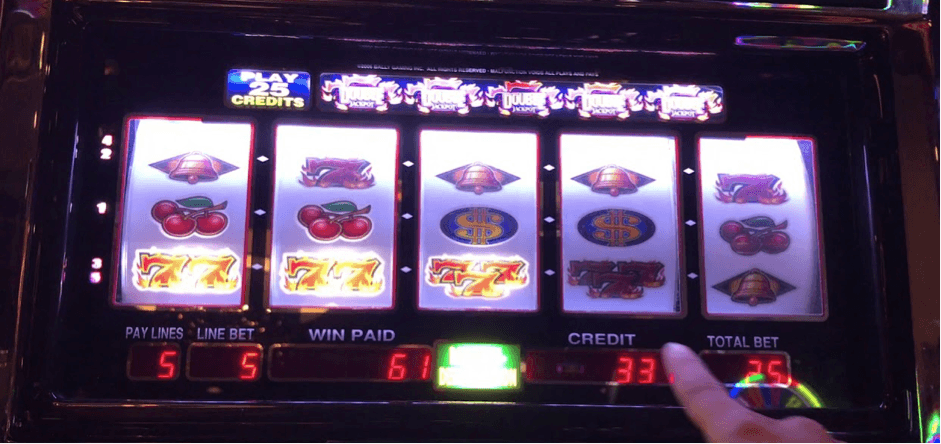
There are many variations of online slots, but for the sake of this example, let’s take a classic version of the three-reel machine with 4 symbols each - the number 7, cherries, lemon, and the golden star. You get three 7s, and you win the jackpot. Now, how can you calculate your probability of getting the main prize?
By calculating the combinations, of course. First, you need to calculate the likelihood of hitting one 7 on the first reel. Since all reels consist of 4 symbols, your chances of getting 7 are 1/4 (25%). The same goes for the other two reels. Does that mean your probability of winning the jackpot stands at 25%? Absolutely not. To get your likelihood of hitting three 7s, you need to use the combination equation, meaning you have to multiply all three probabilities:
1/4 * 1/4 * 1/4 = 1/64
Thus, your chances of winning the grand prize are 1/64, meaning they stand at 2.77%.
Besides slots, you can also use combinations in other games. It’s especially popular among sports bettors, who use it to multiply their bets and get better odds in the process. Remember that the lower your chances, the higher the payout.
Law of Large Numbers
We’re nearly done with the math lesson, don’t worry. There’s only one thing left we want to clarify before we get on with the rest of the article - the law of large numbers. It’s a concept often overlooked among casino players, yet understanding it can make a huge difference. This is because it gives a player a general idea of long-term profitability and expected loss.
Okay, what is it exactly? By definition, the law of large numbers indicates that as the sample size increases, the average of actual outcomes will likely get closer to the mathematical likelihood. Simply put, it means that the more times something happens, the closer it gets to what it’s supposed to be. Got it? If not, let’s take a look at a simple example:
Suppose you want to play poker. You start the game by losing 8 straight hands. Does that mean you’re a terrible player? It can, but let’s say that it’s the cards’ fault. Most players would give up by that point, but not you. Why? Because you understand that everything will even out eventually. According to the rule of large numbers, the bigger the sample size, the closer to probability you get. It means that with enough rounds played, you should start winning.
Of course, it usually takes much more than just a few rounds for the situation to even out. The example described above is purely hypothetical. However, our lesson here is that no matter how many times you lose, according to math, you will have to win at some point. Be careful, though. It also works the other way around.
Random Events
We mentioned at the beginning that there’s no such thing as luck in gambling. Well, it might’ve been a slight exaggeration. When it comes to casino games, there’s always a chance for a series of outcomes that one cannot predict - the so-called random events. What are the examples?
Well, let’s say you’re at the blackjack table. Before the game starts, all players have an equal chance of winning. The same goes for roulette. If all players place the same bet, all can win once the dealer flips the wheel. That’s because which cards you get or where the ball stops are two completely random events.

Of course, it doesn’t mean that such occurrences can’t create a specific pattern. In fact, they often do, making players believe that there’s not much randomness involved in gambling. After all, it’s highly unlikely that you get the same cards in a row when playing poker, right? However, once a dealer deals you three exact hands one after another, you might think something is incorrect. The thing is, though, there’s nothing unusual about it from the mathematical point of view. Why? Because probability always remains the same! Also, by definition, random events are independent of each other, meaning that one cannot influence another.
It’s something many players can’t understand, leading them to false conclusions that games are being manipulated. In reality, though, online casinos don’t control each shuffle or roulette spin. They use special programs that generate randomness, called RNGs (random number generators).
Random Number Generator
RNG is an online casino software used by gambling sites to create a more realistic and random gaming experience. The only question is, is that possible? Can online gambling games have a hundred percent unexpected outcomes? Not quite. Of course, we don’t imply that online casinos are rigged. They are not. The problem lies deeper, more precisely, in the program itself.
But let’s start from the beginning. RNG is a computer program that generates random outcomes. All such software needs is an algorithm and seed number. It doesn’t require any external input, producing a new event every millisecond. RNG does it by taking the last number, or two produced. Then, it uses standard mathematical operations, such as multiplication, division, or subtraction, to create new outcomes.
All seem irregular at first, but as you already know, randomness doesn’t exist in math. If the program uses specific operations repeatedly, the outcome won’t change. Thus, RNGs aren’t a hundred percent random. They only create an illusion of uncertainty to make the online casino gaming experience more realistic. And frankly, there’s nothing wrong with that.
Also, keep in mind that casino software providers regularly update their programs and that seed numbers sites use can’t be tracked. Those programs are entirely independent, so you don’t have to worry about games being manipulated.
House Advantage
We haven’t lost you yet, have we? Hopefully not, because things are just about to get even more interesting. Now that you know the basic gambling math, we can finally show you how to use it to your advantage. Let’s begin with the good old house edge.
As you know (or don’t), no matter which game you play, the casino always has better odds. All casino games are designed that way, providing casinos with a built-in edge, called the house advantage. It represents the average gross profit a site can expect to make from a single game. More importantly, though, it can tell you which casino game may offer you the best return from your bet.
Games with a higher advantage will pay out less, making them unprofitable in the long run. With that in mind, if your goal is to win real money, playing them for too long might not be the best idea. Luckily, it’s a mistake you can easily avoid by comparing different games’ house advantages.
Let’s take a look at how various popular games compare in terms of the house edge:
In general, all card games come with the lowest house edge, making them the most profitable to play in the long run. What’s more, they require at least basic mathematics. Because of that, casinos can’t hold an advantage over players, as every outcome depends primarily on their skills rather than random events and luck. The same can’t be said about games like roulette, craps, or slots. However, it doesn’t mean you can’t use math to boost your chances. We’ll discuss that later in the article.
Gambler's Fallacy
Before we tell you how you can use the math behind gambling to your advantage, we want to cover one more essential subject - the often-overlooked gambler’s fallacy. We mentioned it briefly in the first section, describing it as people’s misconceptions and superstitions regarding online gambling. The most popular false beliefs are:
- Everything will even out
- Commonly occurring events prove that casinos are biased
- One can gain an advantage over random events
As you can see, all those misconceptions come from believing that random events aren’t independent. This often leads to wrong conclusions that the outcome of the next event will be the opposite of the preceding events. The best way to describe it is by using the roulette analogy.
Imagine that the wheel’s ball falls on black 10 times in a row. What’s your first thought? That the next spin will fall on red. After all, what are the chances for another black? Well, the answer is exactly the same as in the previous 10 spins - 48.60%. That’s because every spin is an unrelated event. And even though the chances for 10 blacks in a row stand at 0.27% (remember our combinations equation?), every next spin has the same probability as the previous one.
And do you know the best thing about this example? It actually happened back in 1913, in the Monte Carlo Casino, Las Vegas. Then, the roulette wheel’s ball landed on the black square 27 times in a row! By then, people had lost millions betting on red. To this day, the Monte Carlo fallacy is a crown example of how costly misconceptions and superstitions can be in gambling.
What’s interesting, though, is that such a fallacy can also be observed in our everyday lives. Let’s take lotteries as an example. Despite terrible odds, people still love playing lotteries. Moreover, they believe they stand any chance whatsoever of winning the grand prize! Well, we hope that the infographic below will show you just how absurd such a belief is:
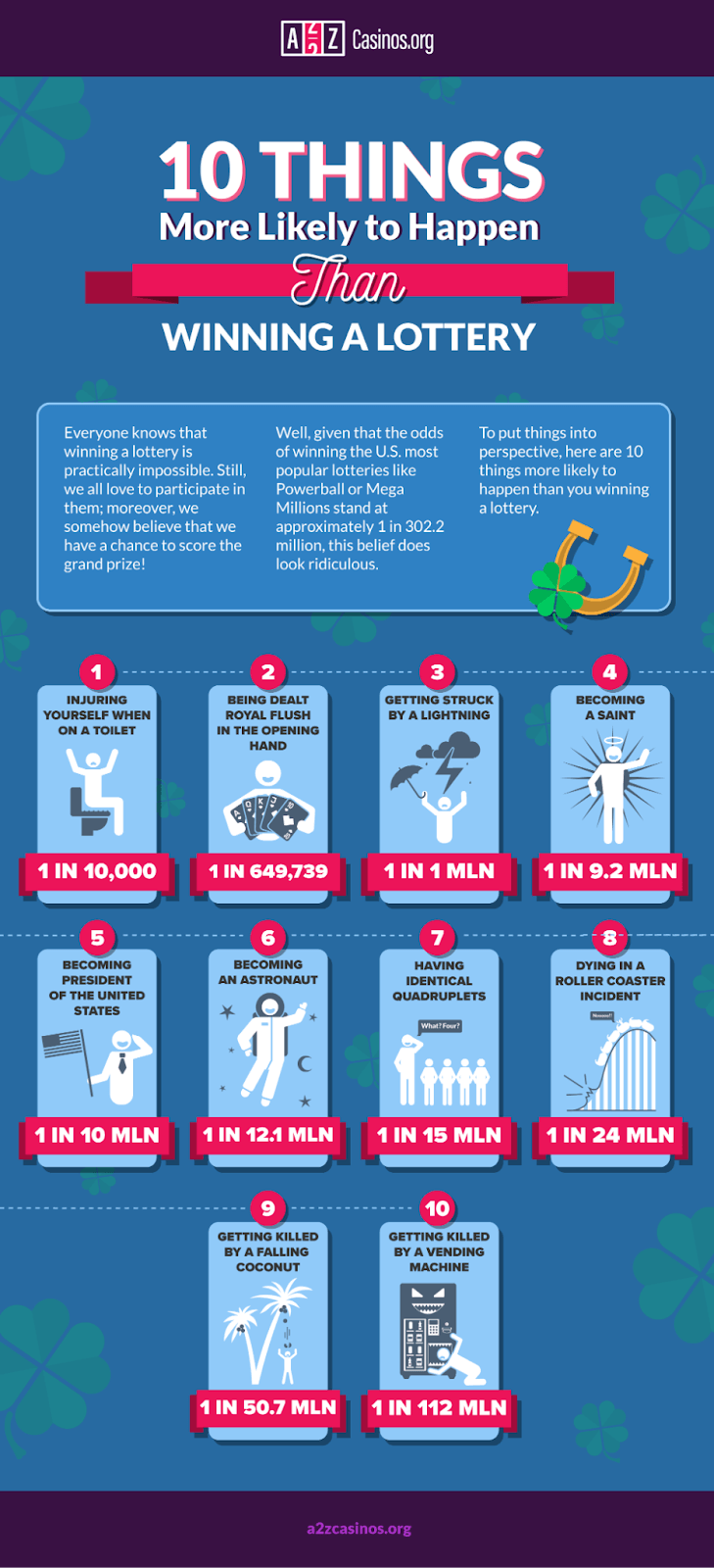
Math doesn’t lie. When it comes to playing the lottery or certain casino games, believing you can win doesn’t make any sense. Does it mean playing them is pointless? No, although it might be a good idea to put math into perspective before spending your every dollar on the lost cause.
Using Mathematics When Playing Online Casino Games
Math can significantly boost your chances of a possible win when playing online casino games. Using mathematical methods can help you create the best basic strategy, find games with the best odds, and, most importantly, ensure you gamble responsibly. And now that we’ve covered the basics, it’s high time to show you how to use what you’ve just learned the next time you visit an online casino.
Card Games: Poker and Blackjack
Among all casino games, the ones involving cards definitely stand out. They require much more skill and knowledge, with luck playing a much lesser role than in other popular games. However, what’s probably the most important is that you won’t win much when playing poker or blackjack if you don’t understand the math behind them. Fortunately, it’s much less complicated than most people think.
To improve your game, you’ll need two learn how to use two basic mathematical methods - simple arithmetic and probability. The first one will allow you to keep track of cards in play, which you can use to calculate the likelihood of specific outcomes. With Blackjack, our tip here is to learn how cards and the number of players affect the odds. The same goes for things like classic 3 Card Poker.
And if you want to take the way you play poker or blackjack to the next level, you can always read books that focus on the subject. Oh, and just to clarify, learning math involved in card games won’t ensure you win every hand. However, it will help you improve your betting strategy in the long run, increasing your chance to win more money as the number of rounds increases.
Roulette
As we’ve already discussed, every single spin in roulette is an independent random event. Therefore, it’s impossible to predict which pocket the ball will land in. Does this mean that mathematics is useless when playing online roulette? Not at all. Sure, it won’t help you foresee the outcome, but you’ll be able to place more reasonable bets, improving your chances to win more money. Let’s take a peek at possible wagers:
As you can see from the chart above, betting all your money on a single number doesn’t make much sense. When playing online roulette, the best thing to do is start placing more probable bets and then move onto the ones with higher payouts. Again, it’s all about probability, so you shouldn’t lose too much if you create an effective betting strategy.
Online Craps
Craps is the most popular of all dice casino games. It’s simple to understand, easy to play, and you can quickly win a lot of money. The problem is, though, you can lose everything in a matter of seconds. And that’s exactly why craps is such an exciting game to play at an online casino.
Like roulette, this game relies on independent random events, with mathematics providing aid when placing bets. For that, you’ll need to look at two things - basic dice math and house advantage.
The first one is relatively easy to understand. You play craps using classic two 6-sided dice. That means each roll has 6 possible ends, and every outcome happens 1 out of 6 times on average. And since there are two dice, we have to use the combination, so the probability of rolling, let’s say two 5s stands at 1/36.
Now to the second factor that one needs to consider - the casino advantage. As you can see in the table we provided in the house edge’s section, the house advantage in craps varies from 0 to over 16%, depending on the bet. Use those two determinants as a reference to place more thought-through and responsible wagers.
Slot Machines
There’s not much math involved in online slots. Well, there is, but not in a way one can use it to gain any advantage. Contrary to games like blackjack or poker, you don’t need any additional skills to play and win slots. It’s a simple game of luck. However, it doesn’t mean you can’t slightly improve your chances of a possible win. Remember how we talked about house edge? You can use it to choose a slot machine with the best odds by looking at RTP - Return to Player.
RTP represents how much a slot machine has paid out over its lifespan in relation to how much players have paid in. Usually, it’s represented as a percentage, where the amount required to get to 100% is the house advantage. For example, if a slot game’s RTP is 95%, it means that the online casino has a 5% edge.
And since the lower the house edge, the better, choosing online casino slot games with high RTP is your best shot to score the prize. The rest is in the random number generator’s artificial hands.
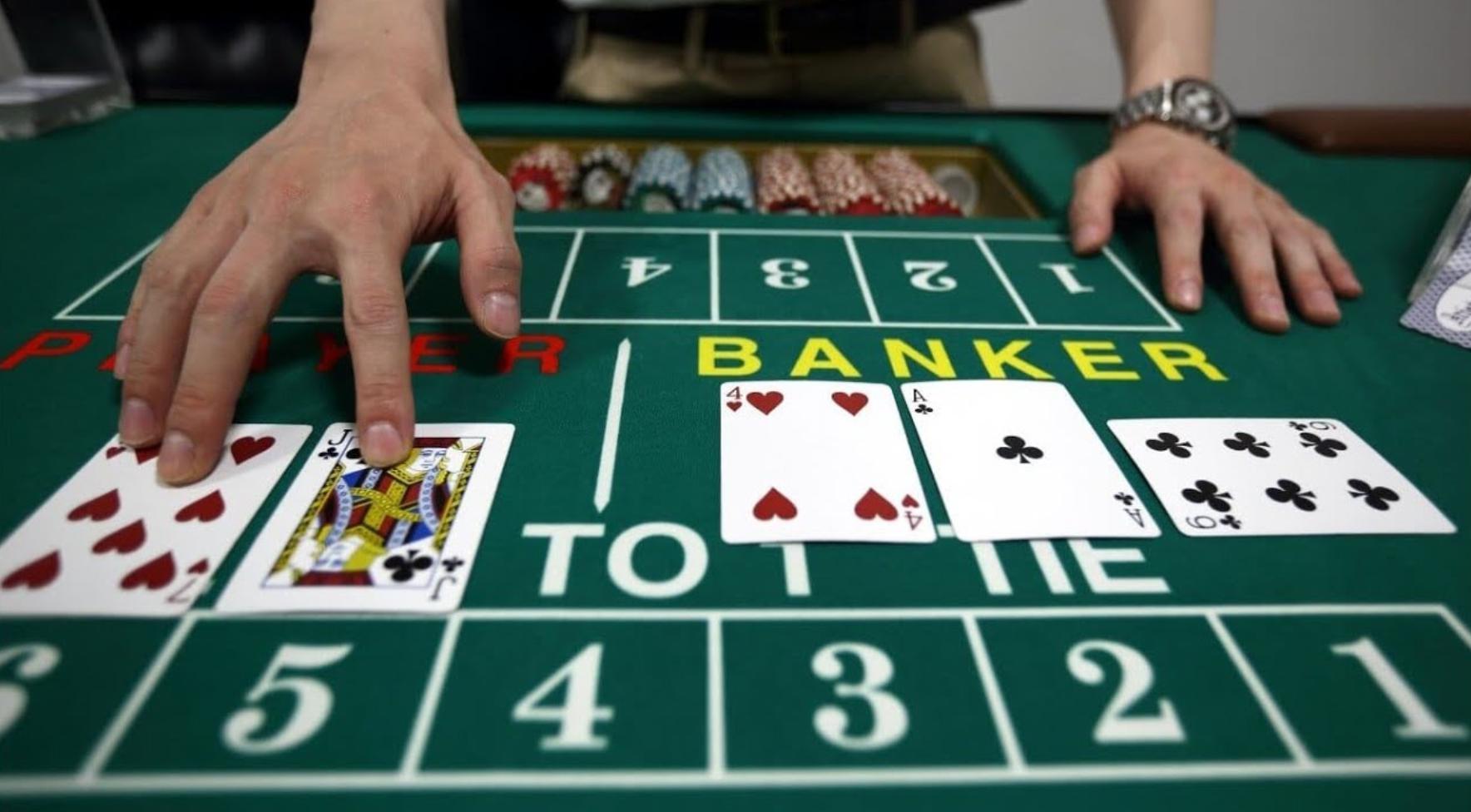
Final Thoughts on Online Gambling Mathematics
And there you have it! As you can see, math doesn’t have to be boring or complicated. On the contrary, it can be fascinating, especially when talking about its effect on online casinos. But, of course, the point of our article wasn’t to show you how fun gambling mathematics is. We wanted to prove to you that math and gambling are inseparable. More importantly, though, our goal was to show you that understanding the mathematics behind online casino games significantly impacts how people gamble.
By using simple mathematical equations, you’ll be able to bet more responsibly and increase your chances of winning. Math will help you choose the best game, place the right wager, and create an effective bankroll strategy. Hopefully, you can see it now, and we haven’t bored you to death with our short math lesson, and that from now on, your online gambling and betting experience will become even more exciting. And most significantly - more successful.






